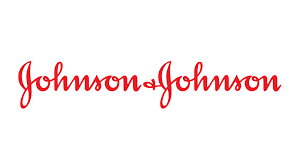 Johnson & Johnson is fighting another shareholder proposal for an independent racial equality audit of the company.
Johnson & Johnson is fighting another shareholder proposal for an independent racial equality audit of the company.
New Brunswick, New Jersey–based J&J (NYSE:JNJ) defeated a similar measure at last year’s annual meeting of shareholders, though the vote was far from a landslide. The company also unsuccessfully petitioned the U.S. Securities and Exchange Commission to keep it off the ballot.
Now, an independent audit is again up for consideration at the April 28 annual meeting after surviving another J&J appeal to the SEC.
Proponents of the audit cite ongoing controversies over talcum powder allegedly marketed to minorities. They also point to the J&J Political Action Committee’s financial support of Republican members of Congress who voted to overturn President Joe Biden’s election after insurrectionists stormed the U.S. Capitol.
“Perhaps not since the civil rights era of the 1960s have citizens spoken with a more clear and compelling demand to end racism and discrimination in all its forms. Investors share this concern,” Mercy Investment Services wrote in an SEC filing in support of its audit proposal. “In the healthcare industry, business-as-usual has resulted in disparate outcomes for Black Americans. … An audit engages a company in a process of risk mitigation that internal actions alone may not replicate. An objective review that validates current steps and offers recommendations to uproot biases may result in greater certainty for shareholders that a smart path is being taken.”
Investors backing the proposal include philanthropists Christopher and Anne Ellinger and faith-based organizations such as the Providence St. Joseph Health system, Portico Benefit Services and the Sisters of St. Francis of Philadelphia, among others.
J&J’s board opposes the proposal, saying diversity, equity and inclusion (DEI) is already part of the company’s credo and core values; that board directors and executives continually review their DEI policies, practices and goals; and that the company publishes two annual DEI progress reports.
J&J “has made a commitment to address racial and social justice through Our Race to Health Equity platform and several other programs, and the requested audit would divert resources from this and other DEI initiatives,” the board said in its opposition to the proposal. “The company embraces DEI as a key driver of its success and intends to continue to publicly demonstrate its commitment to DEI in all aspects of its business.”
About one-third of voting shares supported a similar audit proposal in 2021, including one of J&J’s largest shareholders: BlackRock, which owns nearly 8 percent of J&J stock. The New York-based investment firm said it voted for the proposal “because we believe that an audit would complement the company’s current programs to advance racial equity and might yield further insights to accelerate its progress.”
In the weeks before the 2021 J&J shareholder meeting, Blackrock said it planned a similar audit of its own business, joining companies like Citi, Facebook, Starbucks, Airbnb and, most recently, JPMorgan Chase.
Vanguard Group, however, owns nearly 9 percent of J&J shares and voted against the 2021 proposal, saying “sufficient action or change has been implemented and (the) proposal is overly prescriptive.”
One day after the 2021 J&J annual meeting, nearly 40% of voting Abbott Laboratories (NYSE: ABT) shareholders supported a proposal for a report “disclosing the company’s plan, if any, to promote racial justice.”
The audit proposed by Mercy Investment Services should not be confused with another proposal filed by a conservative organization that warned DEI policies may be discriminatory.
The J&J board opposes that proposal on the same grounds, but added that “certain viewpoints relating to DEI efforts and racial equity [in the proposal] run directly contrary to the company’s beliefs and experience that embracing DEI is an important element to our continuing and future success.”
With nearly $23 billion in annual revenue, J&J’s medical device business makes it the second-largest medtech company in the world, according to Medical Design & Outsourcing‘s latest Big 100 rankings.